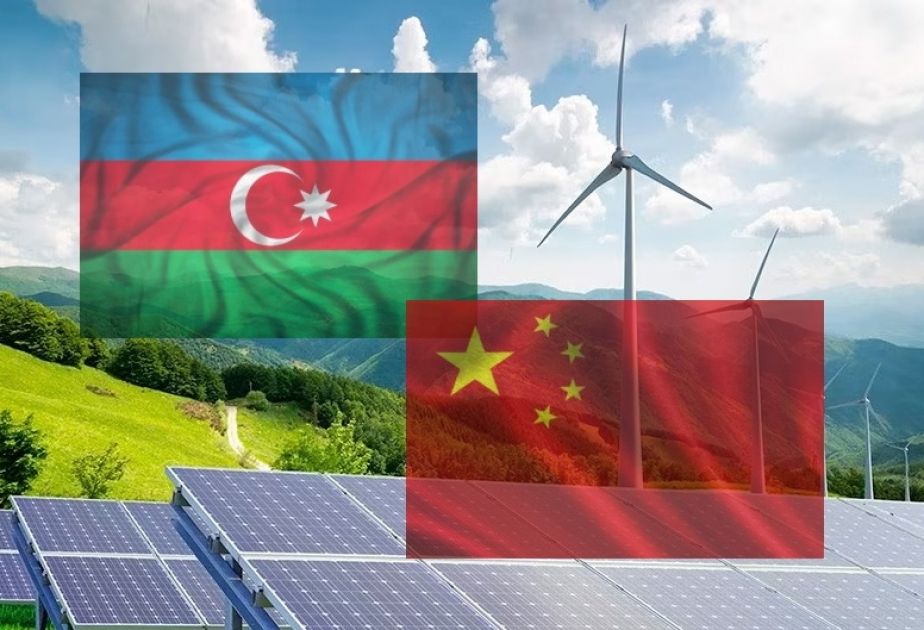China eyes investment in Azerbaijan's Green Energy

Chinese companies have expressed their significant interest in engaging with Azerbaijan’s renewable energy sector, driven by the country’s untapped potential in green energy. Einar Tangen, a senior researcher at the China Globalisation Centre, highlighted that the collaboration could encompass various areas, including the development of green energy corridors, energy storage systems, and the production and export of green hydrogen and ammonia.
Plans and initiatives: Reflection on both countries' strategic agendas
As for the renewable energy projects, notable agreements include the planned construction of solar power plants with capacities of 60 MW and 100 MW, in collaboration with Chinese partners. These projects reflect China's strategic interest in Azerbaijan's renewable energy landscape. Which has been on both the countries’ strategic agendas for the last couple of years. The economic dimension is a central focus in Azerbaijan-China relations. China’s foreign policy is predominantly aimed at securing economic interests globally, and the "Belt and Road" initiative, launched in 2013, demonstrates this strategy. Azerbaijan’s strategic importance to this initiative was underscored by the opening of the "Baku-Tbilisi-Kars" railway in October 2017, which China highly praised for supporting the "Belt and Road" project. Furthermore, during President Ilham Aliyev’s 2015 visit to China, a Memorandum of Understanding was signed to jointly promote the creation of the "Silk Road Economic Belt," outlining directions for enhancing economic and trade relations. Thus, these projects are not only crucial for enhancing energy efficiency and reducing carbon emissions, it also give a great chance for green energy corridors and interconnectors as part of the broader strategy to integrate Azerbaijan’s renewable resources with regional and global markets.
The production and transportation of green hydrogen and ammonia are key areas of focus. These technologies align with global trends toward cleaner fuels and may position Azerbaijan as a significant player in the green energy market. The development of energy storage solutions is vital for managing the intermittency of renewable energy sources. Investments in this area will support the stability and reliability of Azerbaijan's energy supply.
Global renewable energy growth overstated by China’s dominance
Excluding China’s remarkable achievements, the actual growth in renewable energy capacity is far less impressive. This difference highlights a critical issue: the need for accelerated investment in low-carbon energy sources across regions outside China, particularly in Africa and Asia, which are lagging. The myth of exponential growth can be dangerously misleading, fostering complacency and impeding the urgent efforts required to decarbonize our energy systems globally. However, the impressive global growth figures for renewable energy are largely due to China's contributions. In 2023, China alone was responsible for a remarkable 63 percent of the world’s new renewable energy capacity, adding 298 gigawatts out of a total of 473 gigawatts. More strikingly, China accounted for 96 percent of the year-on-year increase in global renewable capacity. Without China’s substantial additions, the net global increase in renewable capacity for 2023 would have been just seven gigawatts more than in 2022. While the growth figures appear dramatic, they are far from "exponential" when China’s influence is excluded. Take into consideration that rapid and widespread decarbonisation of electricity generation is one of humanity’s most urgent tasks, especially since electrifying transportation, buildings, and industry is central to global warming mitigation strategies.
Azerbaijan's diverse natural resources essential to strengthening evolving partnerships
Although Azerbaijan is a major player in the global oil and gas industry, ranking 20th in the world for proven oil reserves, one of the key pillars of its green development strategy is the rapid expansion of renewable energy infrastructure. It is rich in hydrocarbon resources, which have historically been a significant aspect of its economic relations with China. As Azerbaijan shifts towards renewable energy, these resources remain essential in the processes. Its hydrocarbon resources are still pivotal in the transition to renewable energy, providing a stable energy base during the shift. And when we add Azerbaijan's location and infrastructure, including the Caspian Sea and major transport corridors, are vital for the regional distribution of energy resources.
As interest and investment from Chinese companies grow in Azerbaijan's renewable energy sector, it will definitely signal a promising shift towards a more sustainable and diversified energy portfolio. With COP29 on the horizon, Azerbaijan’s role in the global green energy market is set to gain status, potentially unlocking further economic and strategic benefits.
---
Follow us on Twitter @AzerNewsAz
Here we are to serve you with news right now. It does not cost much, but worth your attention.
Choose to support open, independent, quality journalism and subscribe on a monthly basis.
By subscribing to our online newspaper, you can have full digital access to all news, analysis, and much more.
You can also follow AzerNEWS on Twitter @AzerNewsAz or Facebook @AzerNewsNewspaper
Thank you!

